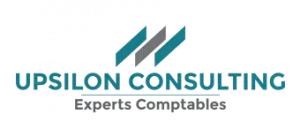Business Budget in Morocco – 3 tips from a professional
Developing a budget in Morocco is a crucial step for the financial management and strategic planning of any business.
Our role as an accountant is to help our clients develop a budget in Morocco.
- First, the importance of this management tool;
- Second, the essential skills and knowledge that the accountant brings to this process.
Learn how a CPA can be a valuable asset in the budgeting process.
Developing a budget in Morocco: why is it important?
Budgeting is an essential part of running your business effectively. Indeed, developing a budget in Morocco and monitoring its execution has become an imperative of modern management.
It provides a roadmap to guide financial and operational decisions.
The budget in Morocco is of crucial importance, both at the level of public administration and private companies.
In the public sector, the budget in Morocco plays a fundamental role in:
- public expenditure planning,
- management of financial resources, and
- achievement of economic and social development objectives.
In the practice of public establishments, the budget in Morocco is part of the legal requirements. Indeed, this tool makes it possible to prioritize investments in key sectors. In addition, the budget in Morocco is considered a tool that promotes transparency and accountability in the management of public finances.
The practice of budgeting in Morocco also extends to the private sector. Indeed, in business, the budget is an essential tool for financial planning. It allows strategic decision-making and effective resource management.
The generalization of budgeting in Morocco will allow companies to set financial objectives, control costs and optimize profitability. It thus helps to guarantee financial stability.
In addition, it facilitates access to financing by demonstrating the viability of projects and reassuring business partners and financial institutions.
In sum, the budget in Morocco is of vital importance as a key instrument for economic growth, financial stability, and sustainable development, both at the government level and in the private sector.
But how can you ensure that your budget is realistic, precise and adapted to your needs?
Understanding the budgeting process
The process of developing a budget in Morocco essentially goes through three stages:
The financial management process of a company includes several crucial steps to ensure optimal management of resources. Developing a budget is an essential step.
First, identifying financial goals.
Indeed, a company must clearly identify the results it wishes to achieve. For example: Revenue growth, cost reduction, or investment in new projects. In other words, it involves identifying the financial objectives of the company.
This first step helps define the specific results the company wants to achieve. These goals can vary depending on the needs of the business, ranging from revenue growth to cost reduction or even investment in new innovative projects. This precise identification of objectives provides clear direction for the entire organization, which is essential for making consistent financial decisions.
Second, Collect and analyze financial data:
Indeed, the process of developing a budget in Morocco involves gathering accurate information about your income, expenses, and past cash flow to establish a solid foundation. This information is generally contained in the historical data of the general accounting and
The collection and analysis of financial data plays a vital role.
It involves gathering accurate information about the company’s past income, expenses, and cash flow. This data collection provides a solid foundation on which to base future financial decisions. It also helps identify financial trends and areas that need attention.
Financial data analysis helps managers understand the financial health of the company and make informed decisions.
Finally, Developing a realistic financial plan:
Using the data collected, we establish a detailed budget that allocates resources efficiently to achieve your goals while minimizing financial risks.
Indeed, using the information collected, the company can create a detailed budget that allocates resources efficiently to achieve its objectives while minimizing financial risks.
This financial plan details how revenue will be generated, how expenses will be managed, and how cash flow will be optimized.
It is a valuable tool to guide day-to-day financial decisions and to ensure responsible management of company finances. In summary, identifying financial goals, collecting and analyzing financial data, and developing a realistic financial plan are essential steps in a company’s financial management process, thereby contributing to its stability and long-term growth.

Steps to Develop an Effective Budget
Assessing your business’s financial goals
Assessing your business’s financial goals is the first fundamental step in the financial management process. To do this, it is imperative to concisely and precisely define the financial results you want to achieve. This approach sets the direction and priorities for the management of your financial resources. Once the objectives are clearly established, it is time to look at the sources of income and estimate the sales forecast. This phase requires in-depth market analysis, including detailed market research, as well as analysis of previous years’ data to identify trends and growth opportunities.
Estimating operating expenses and identifying cost-saving measures come next.
This step requires a thorough understanding of the variable and fixed costs that influence the profitability of your business. Careful analysis of expenses helps optimize the management of financial resources by identifying areas where savings can be made, while maintaining quality and operational efficiency.
Allocation of resources and prioritization of expenditure categories
Finally, once financial goals have been defined and revenue sources, as well as expenses, have been assessed, it is time to move on to allocating resources and prioritizing spending categories. This step forms the heart of budgeting, where you make crucial decisions about how to allocate your money strategically to achieve your financial goals. This requires careful consideration to maximize spending efficiency while minimizing financial risks. Well-developed financial planning will allow you to make informed decisions and wisely manage your company’s financial resources, thereby contributing to its long-term stability and growth.
Developing a business budget: The role of the accountant in budgeting:
Working with an accountant offers a range of essential benefits for the budgetary management of your business, bringing invaluable value to your financial strategy.
First of all, teaming up with a competent accountant is the guarantee of developing an accurate and realistic budget. These professionals have the skills and expertise necessary to develop a budget that is both based on precise data and in line with the financial reality of your business. Their intervention is crucial to avoid costly errors and to ensure judicious allocation of available resources.
With their in-depth knowledge of finance and accounting principles, accountants can accomplish several essential tasks. They are able to accurately project forecast revenue and turnover, accurately estimate expenses and identify potential financial pitfalls your business may face.
Additionally, working with Upsilon, in particular, offers a holistic approach to budgeting that can significantly improve your ability to secure funding. Investors and lenders often place great importance on the quality of the financial plans presented, and by having the support of experienced accountants, you strengthen the credibility of your business in the eyes of these stakeholders.
In summary, partnering with Upsilon or any other competent accountant helps establish a solid foundation for the financial health and long-term success of your business. Their valuable contribution in developing an accurate and realistic budget, combined with their expertise in finance and accounting, constitutes a major asset to your overall financial strategy.
Upsilon ensures compliance with financial regulations and best practices
Our approach allows you to build a financial model that respects best practices. In addition, they make it possible to inject figures into the model in compliance with tax regulations in Morocco . These include correct and precise tax assumptions, a better approach to working capital requirements, etc.

3 tips for successful budgeting in Morocco
To successfully develop your budget in Morocco, here are 3 important tips to take into consideration:
Analyze Economic Trends in Morocco for a Solid Budget
To develop a budget in Morocco effectively, it is imperative to take into account key macroeconomic indicators. Closely follow the future rate of the dirham, variations in the Bank-Al-Maghrib key rate, and keep yourself informed of the provisions of the Moroccan finance law.
Incorporating these factors into your budgeting process will allow you to anticipate potential changes that could influence your business budget in Morocco.
Upsilon Consulting supports its clients in developing and reviewing their budgets in Morocco.
Adapt Financial Objectives to Moroccan Realities
Financial directors must personalize their company’s financial objectives, taking into account Moroccan specificities. If your business operates in Morocco, make sure that your budgetary objectives are in harmony with local particularities. Take into consideration, in particular, the guaranteed interprofessional minimum wage (SMIG) and tax incentives specific to Morocco. This adaptation will ensure that your budget is in line with the economic context of the country.
Balancing Income and Expenses for a Healthy Budget in Morocco
Careful analysis of income and expenditure is fundamental in the budgetary process in Morocco. Make sure you fully understand your business’s revenue streams in the Moroccan context. Also identify essential expenses, such as housing costs, electricity and water bills, and local labor expenses. Balancing income and expenses is the key to a healthy and efficient budget in Morocco.
Carry out Rigorous Budget Monitoring in Morocco
Once you have developed your budget in Morocco, it is imperative to monitor and adjust it regularly. Use budget management tools to closely monitor your business’s expenses and revenue. If there are deviations from your initial budget, be prepared to make adjustments. Regular monitoring will ensure that your budget remains in line with the financial objectives of your business in Morocco.
In conclusion, developing a budget in Morocco is an essential step to ensuring the success of your business. With the help of an accountant, you can ensure your budget is both realistic and tailored to your needs. So, are you ready to take control of your finances?
Read the original Article in French : Budget au Maroc – 3 conseil pratiques


